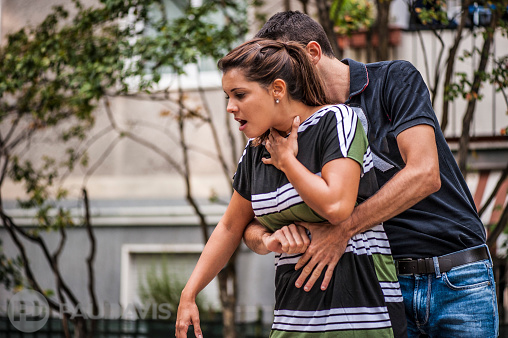
It’s hard to say what exactly you would do if you saw someone choking, especially if that person was a friend, family member or co-worker. Emergency situations can be shocking. It’s tough not to panic, because choking always causes a rush of adrenaline and fear. It is important to stay calm and focus attention on saving lives. The following is a set of helpful approaches to saving someone from choking.
Choking is defined as the blockage of a person’s upper airway by food or other objects, which prevents them from breathing effectively. In adults, choking usually occurs when food is not chewed properly or someone is talking or laughing while eating. Normal swallowing can also become slow when someone has been drinking alcohol or taking drugs. Certain illnesses, such as Parkinson's disease, may also contribute to choking. For many, choking causes a coughing fit, but complete blockage of the airway can also lead to death. Here’s what to do if you think someone may be choking.
Identification:
Look to see if the person is coughing, talking or breathing. If they are, you can encourage strong coughing to help dislodge the object. If the person is not coughing or talking and is losing colour in the face, do not slap them on the back, as this can push the object further into the airway. Instead, have someone call 9-1-1. Ask if you can help them. If they nod yes, begin performing the Heimlich Maneuver.
Heimlich Maneuver:
First, lean the person forward, wrapping your arms around the waist from behind. With your strongest arm, make a fist with your thumb up and facing the choking victim's navel about halfway below their sternum. Grasp the fist with your other hand and thrust up and down repeatedly until the food or object is dislodged.
Medical Assistance:
If the Heimlich Maneuver is successful and the object flies out of the person’s mouth and breathing resumes, don’t call off the first responders. Paramedics can check the victim to be sure you didn’t cause harm with the thrusts. It is not uncommon to break a rib or even puncture a lung at the height of an emergency situation. This procedure is not advised for women who are in late pregnancy. Medical attention may also be needed, as food particles may have made their way into the lungs during the event.
No one knows how they’ll react in a medical emergency. However, should a medical emergency arise, it’s important to remain calm and focused as much as possible. Offer help if you’re able and always encourage people around you to help a victim if you’re unsure of what to do yourself.
